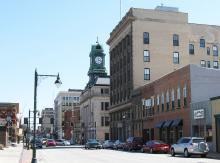Waterloo Set to Vote on Funding for Municipal Fiber Network
The City of Waterloo, Iowa has been flirting with the idea of building a municipal fiber network since 2005 when voters approved the creation of a municipal utility service. Voters said yes to the concept then but were not asked to put any money behind it.
"We were so excited we passed it, and then nothing happened. (The plan had) been gathering dust for 16 years," at-large Councilor Sharon Juon, a member of the city’s broadband committee in 2005, told the Waterloo-Cedar Falls Courier when the city council unanimously approved a $2.5 million contract with Magellan Advisors to design and engineer a fiber network last fall.
This is something our city needs so desperately. We've lost businesses because we don't have the broadband needed.
Now, officials in this northeast Iowa city of 68,000 residents (the eighth-largest city in the state) are ready to take the next step, going back to voters with a ballot question that seeks approval for the city to borrow $20 million to build the network backbone.
Voters will head to the polls to decide the question on September 13. It will need 60 percent approval at the ballot box for the measure to pass.
The ‘Time is Here’
Characterizing the effort to build future-proof fiber infrastructure as “good for the long-range interest of this community,” Waterloo Mayor Quentin Hart told The Courier:
For the past 15 to 20 years, the city has done a lot of talking of needing to do this and to work for our own fiber network, and the time is here.
Should the ballot measure pass, the funds would be used to build a 100-mile fiber backbone to support the city’s sewer, storm water, traffic, and water systems. Consultants to the city have said that general obligation bonds are not required, but would be used to lower the cost of financing the overall project.


